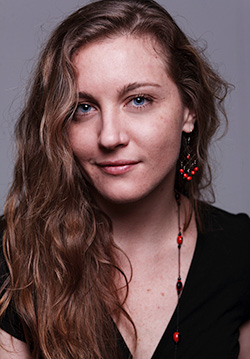|
"Neither peace nor war happen by accident."
Madeleine Albright, the first female Secretary of State, said it in her lecture where I got my MFA in Bloomington, Indiana a few years ago. It was a succinct and eloquent nod to the power of intentionality. Around the same time, the first female U.S. State Department Policy Planning director Anne-Marie Slaughter's piece in The Atlantic about collaborative power came out. "Instead of seeking to structure the preferences of others," she wrote, "those who would exercise collaborative power must be demonstrably willing to shift their own views enough to enter into meaningful dialogue with others."
I've worked in international development for twelve years, in reproductive health, rural medicine, sustainable forestry, freedom of expression, and youth empowerment in Ecuador, Bolivia, Mongolia, Russia, China, Kenya, and Turkey—that is, whenever I wasn't in school, where I studied creative writing and literature almost exclusively. To me the two activities are inextricably linked. I believe study of the humanities is study between ideas and the symbols that stand for them—words—and the very real culture of violence words can engender through the way they allot power in human societies. No one knows the limits of words better than writers; no one is more familiar with the constraining and power-dynamic-enforcing nature of language. My life's work is about finding the liberation in language and exploring its ability to further an agenda that gives more visibility and empowerment to those who have been silenced.
The words of Albright and Slaughter specifically made me think of the refugees I advocate for, and about what it means to "enter into meaningful dialogue with others." I am the recipient of well-founded critiques of my advocacy work because that work is necessarily one of appropriation when I write about refugees or otherwise engage in their stories. I work with Congolese girls in a slum of Nairobi, refugee girls who have been gang raped and left to die by people who slaughtered their parents in front of them. I can either write about that or not. There are vestiges of colonialism all over this work, and certainly they crop up any time I speak "on behalf of" these women. Arguably, the only thing more problematic than doing this work is not doing it. It's either more harmful to contribute to the silence surrounding these women, or it isn't. Because the refugees I work with assure me they want their stories heard, and that my presence in their lives has been a positive one, I continue the work, replete with its gigantic and unavoidable and valid problems. I do it because I am of the opinion that every rhetorical act is one of appropriation. That the use of language itself is tainted with agenda: that communication is born of purpose.
So the question then becomes: do I believe in the goodness of my purpose enough to open my mouth, or uncap my pen? In my experience as a witness, to be a refugee seems always to have undergone great trauma and to live without the sights, sounds, and family members who used to give order and meaning to one's life. It is a profound aloneness. And we turn to literature to feel less alone. I write to create channels of communication—"meaningful dialogue"—between factions within the global community, like refugees and non-refugees. Equally important is meaningful dialogue between an author and the lonely teen—in Congo or in America—who needs to see herself reflected in a book's pages to bear her life for another day.
Does that intention, that rhetorical agenda, resonate with my soul enough to uncap my pen and scribble? My answer: it does, or I wouldn't be drawn to writing. I write first to save myself, and then to possibly reach any lonely person out there who has felt the isolation that is part of the human experience whether that person is a refugee or not. I think we've all been saved by literature; we've all needed stories. We've needed to hear them and we've needed to be heard telling ours.
My best creative writing student bought me a beer years after I taught her. It was my last night living in Indiana, and she asked how to "rock the literary world" as she thought I did and what to do about difficult workshops. I looked at her, a biracial, queer girl from Indiana, half-smile, freckled nose, and remembered how painfully shy she had been, and how phenomenal her stories were.
"Fuck the workshop," I said. "There was a time when you were young and stories saved you from aloneness. There are girls and boys out there who need your stories to stay alive. You're writing for them."
This is the secret to my "craft," and the only piece of advice I feel fit to give. When doubt clouds your writing mind, ask if your intention resonates, if it rings the bell inside your chest that connects you to other needful beings, the bell that connects you to the heart of the earth. If it doesn't, hold the tender vision of your lonely younger self in your mind until it does.
|


